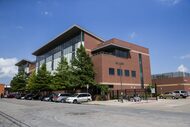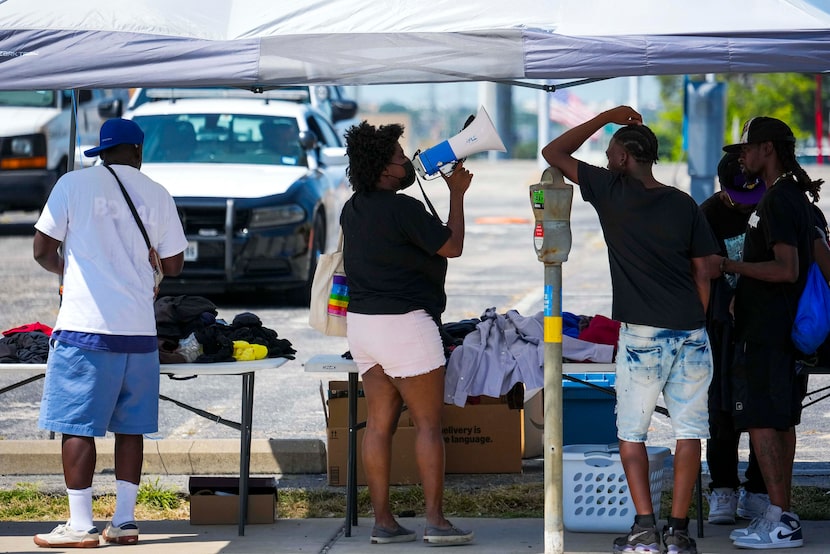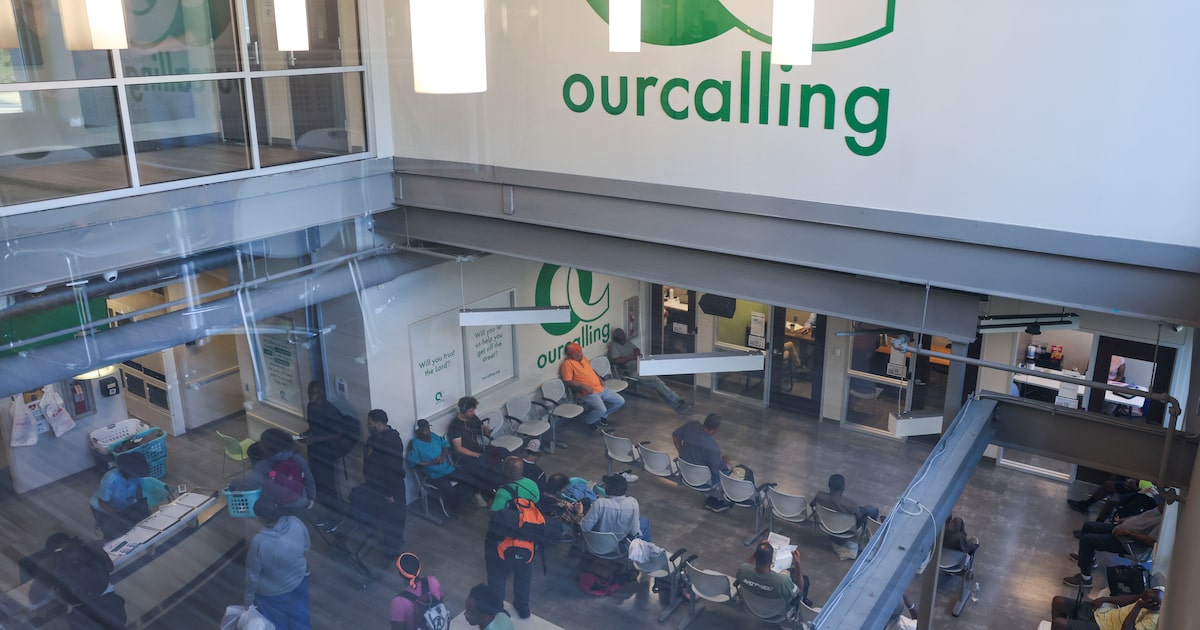Four months after launching a program to help unhoused residents resolve legal issues and access housing and job support, Dallas officials quietly shut it down.
Dallas relaunched the Night Community Court Initiative in February as part of its larger effort to tackle homelessness in the downtown core. While the number of unhoused people has decreased annually in Dallas and Collin counties since 2021, local service providers say the number of people receiving their aid has increased yearly.
Related

Instead of arrests, the night court brought people experiencing homelessness who had outstanding city warrants or ordinance violations to the downtown municipal court at 2014 Main St. There, they could meet with judges and service providers to access resources like housing assistance, addiction recovery and mental health support.
Just 39 people participated in the program before it was suspended indefinitely in July, according to documents obtained by The Dallas Morning News.
Political Points
Tramese Jones, a Dallas police spokesperson, said many of the unhoused people who were part of the program failed to follow up on the services provided.
Jones said it was “a joint decision between the Courts and the Dallas Police Department, based on the lack of follow-ups by the participants, along with the low number of participants meeting the criteria for community court.”
The program began with evening sessions once a month from 4 p.m. to 7 p.m. By June, it was moved to a morning session at the municipal court in West Dallas at 2828 Fish Trap Road. City officials said the change was meant to boost participation.
“Regular business hours allowed all participating organizations to be available and responsive,” said Jones, a Dallas police spokesperson. “The location was changed solely because the designated community court was open that day and had the capacity to accommodate the additional dockets.”
Lack of engagement
Dominique Artis, the city’s Chief of Public Safety, told The News via email the program’s goal was to help unhoused individuals with Class C warrants access wrap-around services in exchange for warrant removal.
“By removing their warrants and offering wrap-around services, the belief was that these individuals would be better prepared to find housing, employment, and reduce our unhoused population in Downtown Dallas,” Artis said.
Related

But, on average, only six participants attended each session, with just one or two effectively engaging with the judge or service providers, he told The News. Few followed up afterward.
Artis noted the city already has a system in place to help unhoused people resolve city-issued tickets.
Through direct referrals to community courts during regular business hours, people can get their tickets dismissed or settle them through community service. This partnership has been active for over five years, with a caseworker from community courts typically available to offer guidance, he said. “Our primary objective is to help unsheltered individuals manage their tickets effectively, allowing them to obtain vital documents necessary for housing and other forms of assistance,” Artis said.

Dallas City Marshal watches from a parking lot as volunteers with the aid group Dallas Sandwich Sundays set up to distribute food, clothing and other supplies to people experiencing homeless along South Ervay Street on Sunday, July 20, 2025, in Dallas.
Smiley N. Pool / Staff Photographer
‘You have to build a relationship’
Ikenna Mogbo, chief housing officer for Metrocare, a Dallas County behavioral and mental health service provider involved in the night court, said he wasn’t told why the program was suspended.
He believes four months was not enough time to see real results.
Mogbo said that success for such programs often comes gradually, primarily driven by word of mouth. When unhoused people stabilize, find housing and share their experiences with peers, others often become more willing to participate.
“If today, if they say ‘I’m ready to try it,’ it’s not available, then it’s too late,” Mogbo said. “You have to have a long-term strategy with this population, because it takes them a long time to trust what we’re telling them is actually going to happen. And they want to see proof.”
The program’s end comes as Dallas expands efforts to address homelessness, particularly in the downtown area.
Dallas has been using community courts to address low-level offenses since 2004, when the first one opened in South Dallas. The courts focus on Class C misdemeanors, which include minor offenses like traffic violations, public intoxication or camping in public spaces, with fines up to $500.
Related

Over time, the system expanded to five courts across the city, offering specialized help for veterans and people struggling with substance abuse.
In 2017, the city tested a “downtown night community court” pilot with just four sessions targeting people identified by a panhandling task force.
The next year, Dallas partnered with the Dallas County District Attorney’s Office to launch a more formal “night court” program. It ran every Thursday from 3 to 11 p.m. for a year at the J. Erik Jonsson Central Library, with social service providers and police referring eligible participants.
The goal, according to a 2018 news release, was to connect people with “proven solutions for a self-sufficient life” through community partners.
Mayor pro tem Jesse Moreno, whose district includes the downtown area, did not respond to multiple email requests for comment.
Mogbo acknowledges that participation in the program was voluntary and that success depended on people choosing to engage. However, he emphasized the night court initiative was another way to help break the cycle of minor charges that often trap people in the justice system without addressing root causes.
“I think that all of the ways to engage with this population are important,” he said. “But one of the things that we realize, especially when we’re talking about the homeless population and engagement with people who are living on the streets, is that you have to build a relationship and that relationship takes time.”
Dallas looks at hospice care, shelters and tiny homes as potential homeless solutionsDallas approves $7.8 million in contracts to continue homelessness services

